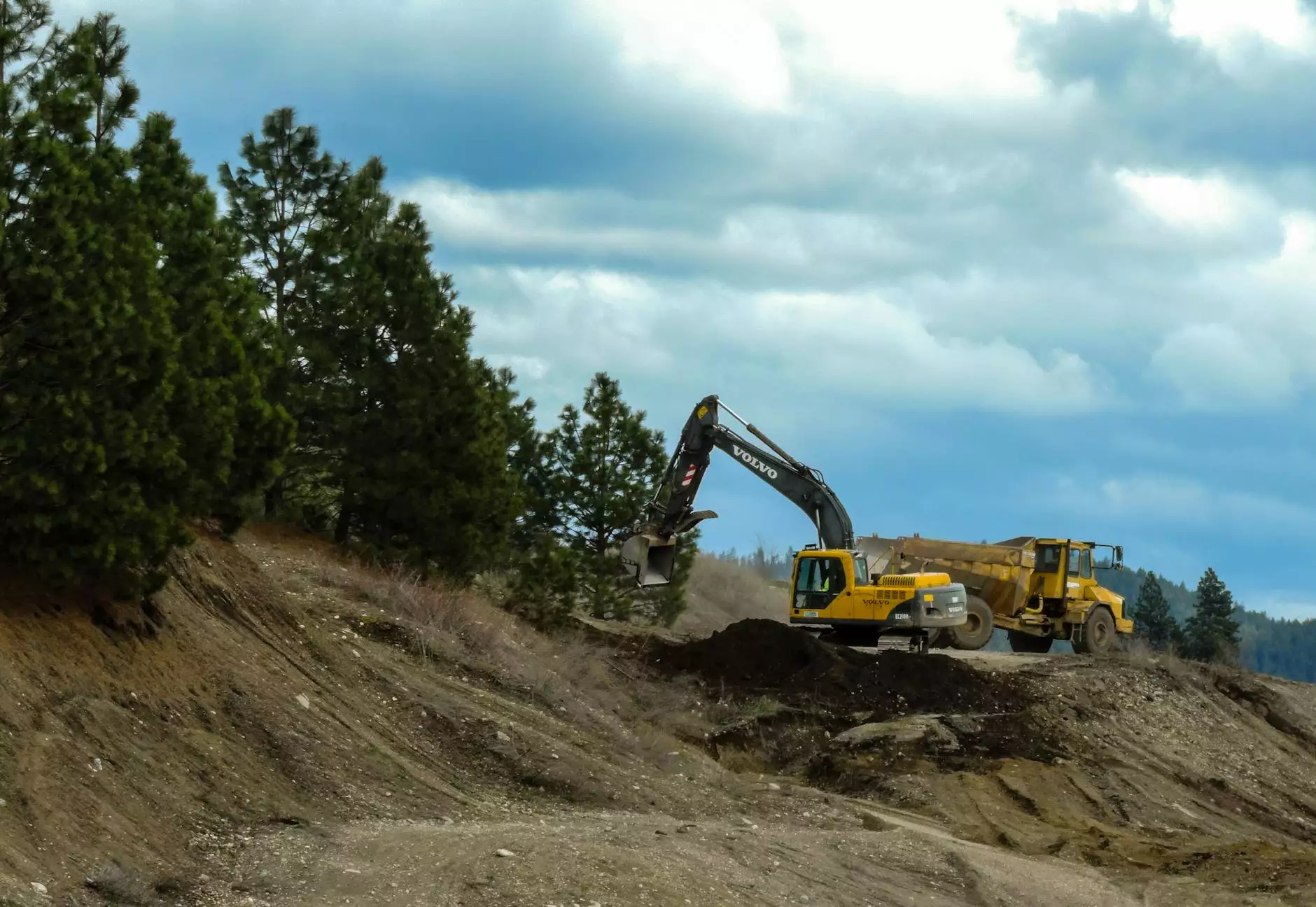Hydraulic Pump for Excavator: Essential Guide for Professionals

The hydraulic pump for excavator is a critical component of the hydraulic system, responsible for generating and controlling fluid power in construction machinery. Understanding the functionality, maintenance, and selection criteria of hydraulic pumps is essential for operators and equipment managers looking to enhance performance, efficiency, and longevity of their machinery.
What is a Hydraulic Pump for Excavator?
A hydraulic pump is essentially the heart of an excavator's hydraulic system. It converts mechanical energy into hydraulic energy, pressurizing hydraulic fluid to facilitate various operations within the machine. This includes lifting, digging, and swinging movements that are vital for earthmoving tasks.
Types of Hydraulic Pumps Used in Excavators
Several types of hydraulic pumps are used in excavators, each tailored for specific applications and efficiency requirements:
- Gear Pumps: Known for their simplicity and reliability, they provide a constant flow of oil and are often used in smaller excavators.
- Vane Pumps: These pumps offer variable flow and pressure capabilities, making them suitable for applications with fluctuating power demands.
- Piston Pumps: Often found in larger excavators, piston pumps are highly efficient and able to handle high pressures, making them ideal for heavy-duty operations.
How Do Hydraulic Pumps Work?
The operation of hydraulic pumps is based on fundamental principles of fluid dynamics. When the engine of the excavator powers the pump, it draws hydraulic fluid from the reservoir and pushes it through the hydraulic system. Here’s a simplified overview:
- The pump draws fluid from the reservoir.
- It pressurizes the fluid and sends it through hydraulic hoses and valves.
- Actuators, such as cylinders and motors, utilize the pressurized fluid to perform work (e.g., moving the arm, rotating the cab).
The efficiency of this process directly impacts the performance of the excavator, making a high-quality hydraulic pump a necessary investment.
Choosing the Right Hydraulic Pump for Your Excavator
Selecting the right hydraulic pump for your excavator can significantly affect your operational efficiency. Consider the following factors:
1. Flow Rate
Ensure the pump's flow rate matches the requirements of your excavator’s hydraulic system. This is measured in gallons per minute (GPM) and should align with the manufacturers' specifications.
2. Pressure Rating
Verify the pressure rating as per the needs of your application. Hydraulic pumps come with varying pressure ratings, typically ranging from 2000 PSI to over 5000 PSI.
3. Compatibility
Check for compatibility with your excavator model. Different models might require specific pump types or brands.
4. Maintenance and Durability
Choose pumps that are known for longevity and ease of maintenance. Investing in a pump that minimizes operational downtime will ultimately save costs in the long run.
5. Manufacturer Reputation
Always consider purchasing from reputable manufacturers known for producing quality hydraulic pumps. Brands like Parker, Bosch Rexroth, and Eaton are industry leaders that offer reliable products.
Importance of Regular Maintenance
Regular maintenance is vital to ensure your hydraulic pump performs optimally. Neglecting maintenance can lead to system failures, costly repairs, and unsafe working conditions. Here are some maintenance tips:
- Inspect Hydraulic Fluid Levels: Always maintain the appropriate fluid level to ensure proper operation.
- Change Filters Regularly: Clogged filters can restrict fluid flow and damage the pump.
- Check for Leaks: Regularly inspect the hydraulic system for leaks that can cause performance issues.
- Monitor Temperature: Overheating can damage hydraulic components; keep an eye on temperature gauges.
- Test Pump Performance: Regular performance tests can help identify potential problems before they worsen.
Signs of Hydraulic Pump Failure
Understanding the signs of hydraulic pump failure can save you from extended downtimes. Be attentive to the following symptoms:
- Unusual Noises: Grinding or whining sounds can indicate internal damage or lubrication issues.
- Inconsistent Performance: If your excavator experiences a lack of power or sudden drops in performance, the pump may be failing.
- Overheating: Excessive heat can signal issues with the hydraulic fluid or pump wear.
- Fluid Leaks: Leaking hydraulic fluid is a definite sign that it’s time for a pump inspection.
Why Invest in High-Quality Hydraulic Pumps?
Investing in a high-quality hydraulic pump for your excavator is essential for several reasons:
- Enhanced Performance: Quality pumps ensure better efficiency and output, translating to improved excavation capabilities.
- Longevity: Higher quality often correlates with durability, reducing the frequency of replacements and leading to lower long-term costs.
- Reliability: A dependable hydraulic pump minimizes the risk of breakdowns, keeping your excavator operational and your projects on schedule.
- Support and Service: Reputable manufacturers often provide excellent customer support and warranties, adding extra value to your purchase.
Conclusion
In conclusion, understanding the functionality and maintenance of a hydraulic pump for excavators is crucial for anyone involved in the construction or heavy machinery industry. A well-chosen and properly maintained hydraulic pump can significantly enhance the performance, reliability, and efficiency of your excavator, making it a worthwhile investment for your business. Whether you are looking for auto parts or supplies specific to excavators, investing in the right hydraulic pump will pay off in operational effectiveness.
For high-quality hydraulic pumps and expert advice, visit Shop Hydraulic America, where you will find a wide range of products suited for your excavator needs!



